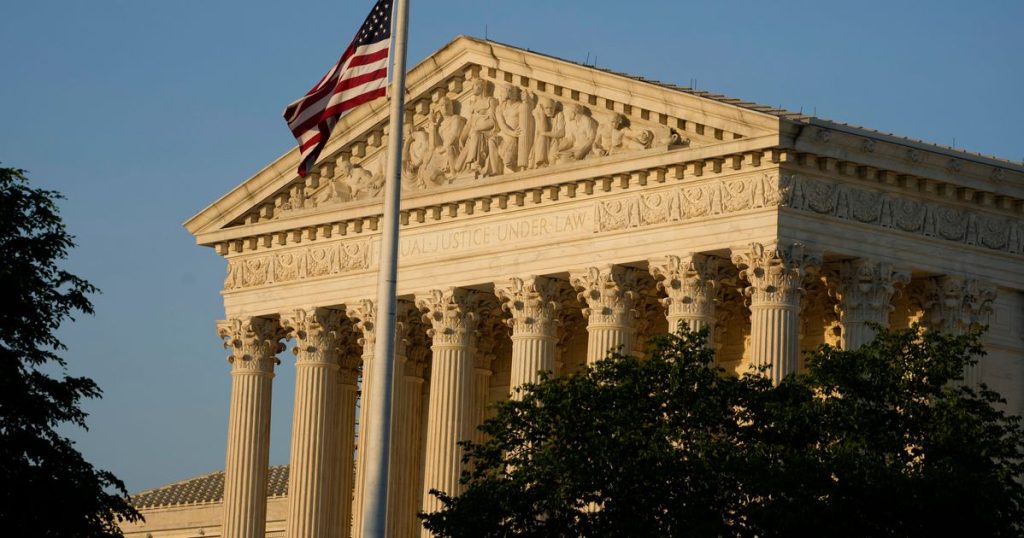The Supreme Court has allowed Idaho to enforce its ban on gender-affirming care for transgender youth while lawsuits over the law proceed. This decision reverses lower court orders. The law, which subjects physicians to up to 10 years in prison for providing hormones, puberty blockers, or other gender-affirming care to individuals under 18, was blocked in its entirety by a federal judge in Idaho to protect the two transgender teens who challenged the law. Critics of the law argue that it may increase suicide rates among teens, while supporters claim that it is needed to protect children from medical or surgical treatments for gender dysphoria, despite little evidence of such surgeries being performed on transgender youth in Idaho. Every major medical organization supports gender-affirming care for youth.
The Supreme Court’s order allows Idaho to implement its 2023 law banning gender-affirming care for transgender youth while legal challenges are ongoing. The law remains in place despite opposition from the court’s three liberal justices, who had wanted to keep the law on hold. The two transgender teens who filed lawsuits against the law will still be able to receive care. The decision comes at a time when the court may also be considering similar bans in Kentucky and Tennessee, which have been allowed to be enforced amid legal battles. At least 23 states have implemented laws restricting or banning gender-affirming medical care for transgender minors, with many facing legal challenges.
Medical professionals define gender dysphoria as severe psychological distress experienced by individuals whose gender identity differs from their sex assigned at birth. Gender-affirming care for youth is widely supported by major medical organizations, including the American Medical Association, the American Academy of Pediatrics, and the American Psychiatric Association. Despite this support, laws restricting or banning such care continue to be enacted in multiple states. A federal judge struck down Arkansas’ ban as unconstitutional, and Montana’s ban is currently on hold. The Supreme Court’s decision to allow Idaho’s law to be enforced may set a precedent for similar laws in other states.
Opponents of laws restricting gender-affirming care argue that they harm transgender youth and may increase suicide rates among this vulnerable population. Supporters claim that such laws are necessary to protect children from potentially harmful medical treatments. However, there is little evidence to suggest that gender-affirming surgeries are being performed on transgender youth in the states with these laws. The Supreme Court’s decision to allow Idaho’s ban on gender-affirming care for transgender youth to be enforced highlights the ongoing legal battles over these laws in multiple states. As more states implement such restrictions, the debate over the rights and healthcare options for transgender youth continues to intensify.


